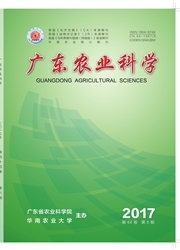

 中文摘要:
中文摘要:
20世纪80年代以来,发达国家和发展中国家大都经历了灌溉管理制度改革,即将灌溉管理权利和责任从政府机构向用水协会或其地方非营利组织转移。农民用水协会被广泛认为是地方农业灌溉管理的卓越制度安排。农户参与对用水协会的绩效有重要影响。因此,基于计划行为理论,构建了影响农户参与用水协会行为因素的理论分析框架,并利用江西省307位农户的调查数据,运用结构方程模型方法,实证分析了影响农户参与用水协会行为因素。结果表明,主观规范、行为控制认知显著正向影响农户参与用水协会的意向,而行为态度对农户参与用水协会的意向影响不显著。行为意向显著影响农户的决策参与和灌溉管理参与。
 英文摘要:
英文摘要:
Since 1980s, many countries, the developed countries and developing countries, have transfered the rights and responsibilities of the management of irrigation systems from government agencies to water user associations(WUA) or other local non-governmental organisations. WUAs are widely seen to have the potential to be a superior institutional arrangement for local irrigation management. It has important effect on the performance of WUA for Farmers participating in WUA. Therefore, on the basis of the planned behaviour theory, this paper established theoretical framework to analyze the factors influencing peasant households participating in WUA. By 307 peasant households survey data in Jiangxi province and applying structural equation model, the factors of participating in WUA were studied. The results indicated that the subjective norm and perceived behavioral control had significant impact on the peasant household intention to participate in WUA, but the impact of behavioral attitude was not significant. Results also showed that behavioral intention played an important role in the peasant households participating in WUA for decision-making and irrigation management.
 同期刊论文项目
同期刊论文项目
 同项目期刊论文
同项目期刊论文
 期刊信息
期刊信息
